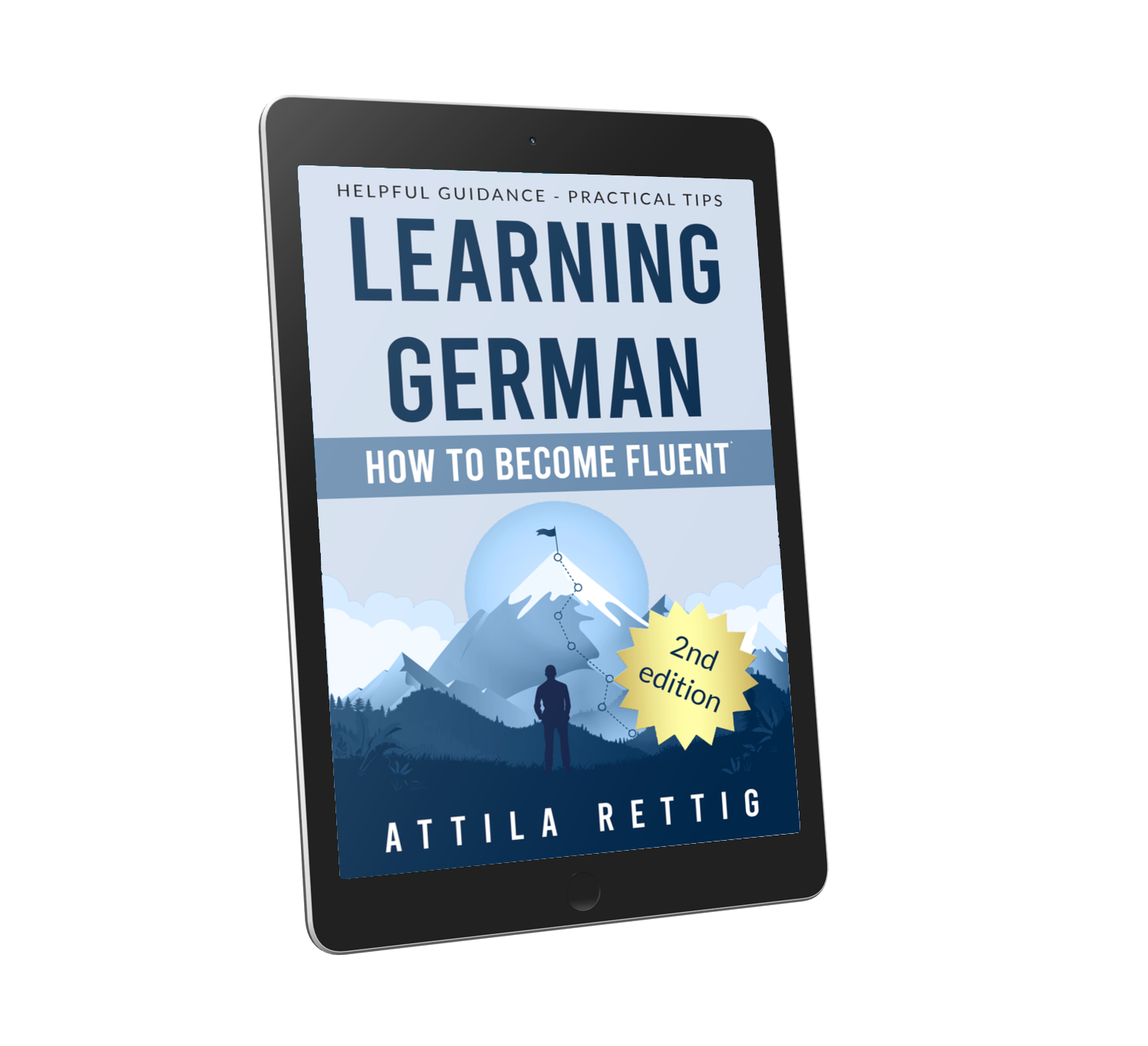Detailed content of the chapters
CHAPTER 1
YOUR PAIN
In Chapter 1, I’ll help you find solutions for the following struggles:
- “My grammar is not good.”
- “My vocabulary is not good enough to express myself properly. I speak like a child.”
- “I understand much more than I can speak.”
- “I don’t have a great talent for languages like other people do.”
- “I’m stressed because of making mistakes, both in grammar and vocabulary.”
- “I’m stressed while speaking to a native speaker.”
- “I’m even stressed when I meet someone from my own country speaking the same foreign language.”
- “Why is this language so damned complicated? So many things don’t make sense!”
- “Somehow, I’m not getting any further. I’m stuck.”
CHAPTER 1
WHAT IS FLUENCY?
Chapter 2 explores the concept of language fluency, defining it as the ability to communicate effectively in a foreign language with appropriate grammar and vocabulary within cultural contexts.
I have tried to emphasise that fluency isn’t about perfection but rather reaching a certain level of proficiency, typically around B2. Fluency develops gradually across beginner, intermediate, and advanced stages, focusing on meaningful communication rather than extensive vocabulary.
It emphasizes the importance of fluid speech without constant pauses for grammar or word retrieval and advises against unrealistic expectations. Ultimately, the text encourages personalized and enjoyable language learning methods, highlighting the value of perseverance and finding joy in the process rather than relying on quick fixes.
CHAPTER 3
12 ELEMENTS OF THE RIGHT MINDSET
In Chapter 3
CHAPTER 4
YOUR PAIN
In Chapter 1, I’ll help you find solutions for the following struggles:
- “My grammar is not good.”
- “My vocabulary is not good enough to express myself properly. I speak like a child.”
- “I understand much more than I can speak.”
- “I don’t have a great talent for languages like other people do.”
- “I’m stressed because of making mistakes, both in grammar and vocabulary.”
- “I’m stressed while speaking to a native speaker.”
- “I’m even stressed when I meet someone from my own country speaking the same foreign language.”
- “Why is this language so damned complicated? So many things don’t make sense!”
- “Somehow, I’m not getting any further. I’m stuck.”
CHAPTER 5
WHAT IS FLUENCY?
Chapter 2 explores the concept of language fluency, defining it as the ability to communicate effectively in a foreign language with appropriate grammar and vocabulary within cultural contexts.
I have tried to emphasise that fluency isn’t about perfection but rather reaching a certain level of proficiency, typically around B2. Fluency develops gradually across beginner, intermediate, and advanced stages, focusing on meaningful communication rather than extensive vocabulary.
It emphasizes the importance of fluid speech without constant pauses for grammar or word retrieval and advises against unrealistic expectations. Ultimately, the text encourages personalized and enjoyable language learning methods, highlighting the value of perseverance and finding joy in the process rather than relying on quick fixes.
CHAPTER 6
12 ELEMENTS OF THE RIGHT MINDSET
In Chapter 3
